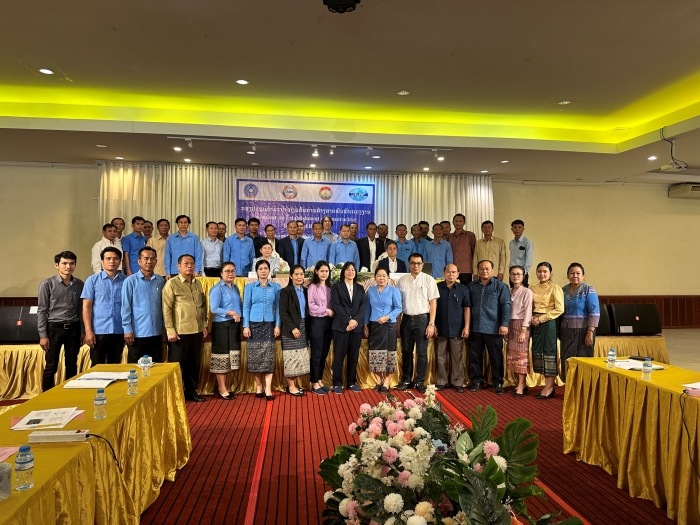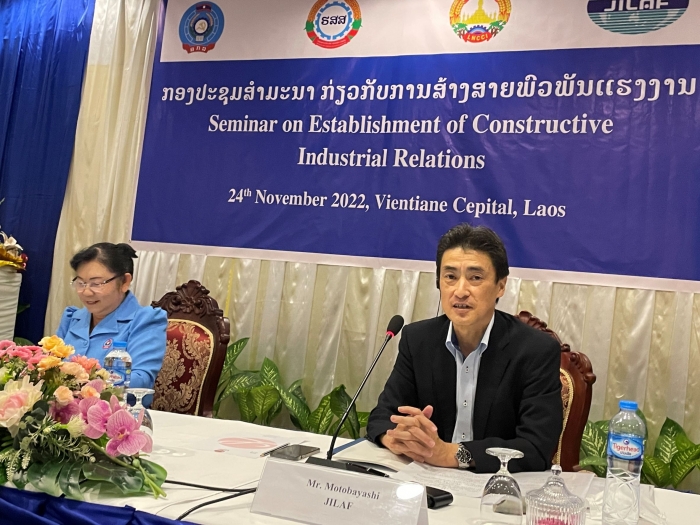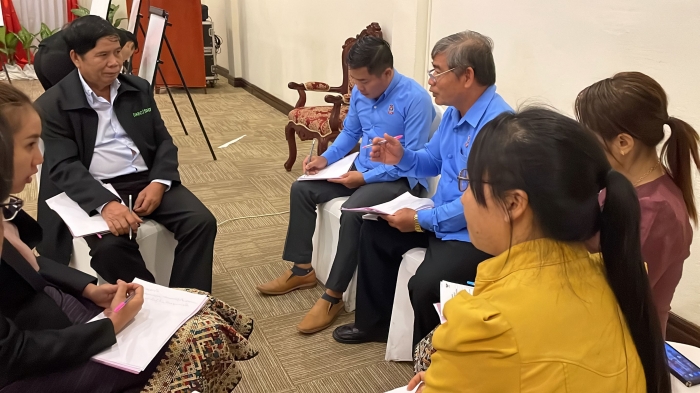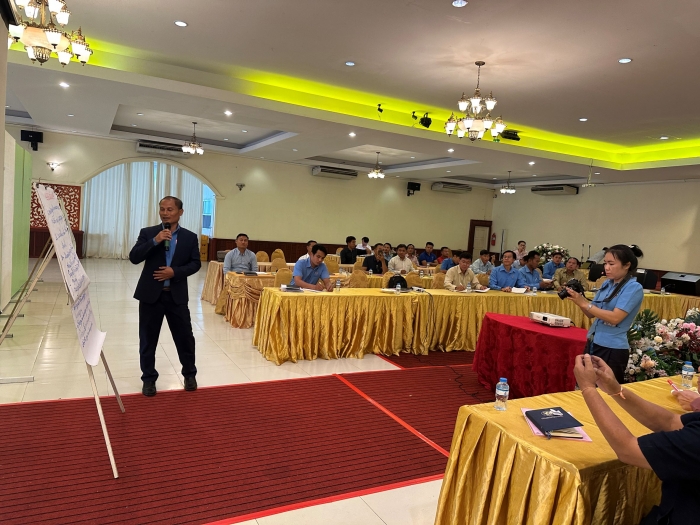LFTU/JILAF Seminars on Industrial Relations (IR) and Labour Policy in Laos
The Japan International Labour Foundation (JILAF), together with the Lao Federation of Trade Unions (LFTU), held seminars on industrial relations (IR) and labour policy in Vientiane on November 24, and in Savannakhet on November 30. A total of ninety seven people participated in the seminars.
At the beginning of the seminars, JILAF and LFTU made opening remarks, then shared the purpose of the seminars with all the participants, and encouraged them to participate actively. Along with this, they also hoped that the seminars would lead to the actualisation of decent work and stable social and economic development through the building of constructive industrial relations.
During their lecture, JILAF shared information on matters such as (1) Japan’s social security system, (2) labour measures post-COVID-19, and (3) Japan’s labour movements and their roles and challenges. In response, participants asked questions about the details of Japan’s social security system, the conditions for receiving pensions, and how company profits should be distributed appropriately between labour and management, etc. Afterwards, LFTU shared information on what role they would play in preventing industrial disputes, resolving problems, and building constructive industrial relations post COVID-19.
Next, the participants were divided into multiple groups and formed action plans for constructive industrial relations and preventing unnecessary industrial disputes. At both seminars in Vientiane and Savannakhet, each group gave a presentation on matters such as (1) establishing and strictly applying written employment contracts, internal regulations, and other such items, (2) promoting further awareness and understanding of labour laws among employees via labour and management, (3) constructing welfare programs that lead to stable employment, and (4) the importance of solid coordination and cooperation between government, labour and management. In response to these presentations, the participants commented that in some regions, there is a growing number of cases where written employment contracts have been established due to follow-up from the government, labour and management. However, they also commented that there are still regions where written contracts are not common due to illiteracy and other reasons, and that measures including literacy training are needed.
At the end of the seminars, JILAF expressed that various issues related to employment and labour have arisen in Laos, due to the impact of price increases and unstable exchange rates caused by not only COVID-19, but also the situation in Ukraine and other such factors. In addition, JILAF mentioned that they would like the government, labour and management to overcome these issues through further collaborative efforts. Following this, LFTU closed the seminars by thanking the participants for their active participation, and expressing their hope for constructive industrial relations to be established through cooperation between the government, labour and management.




